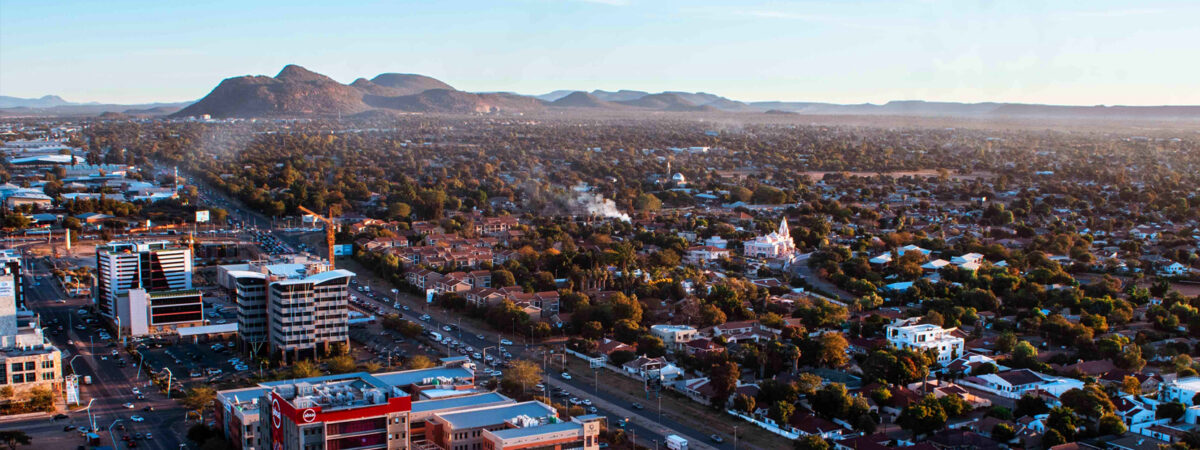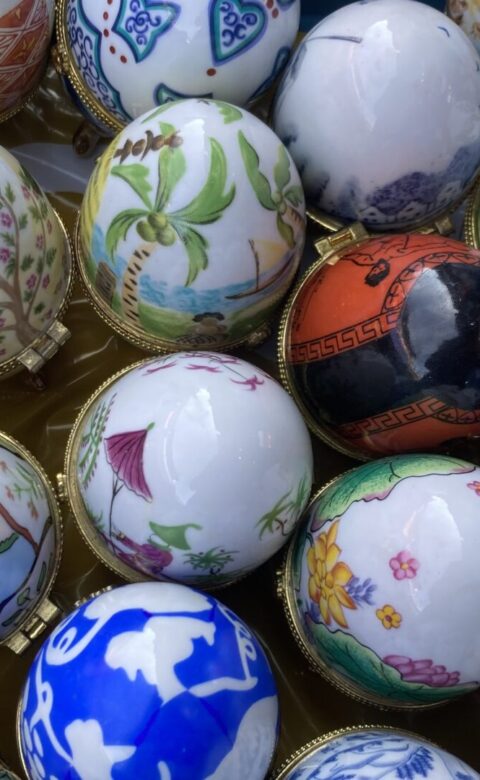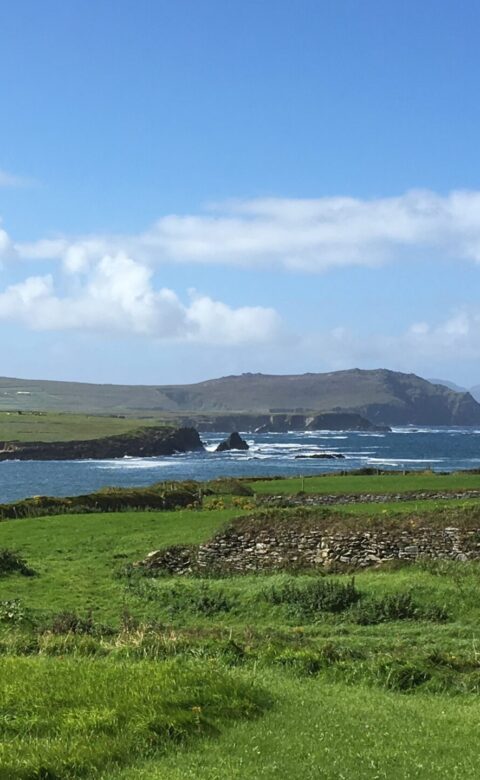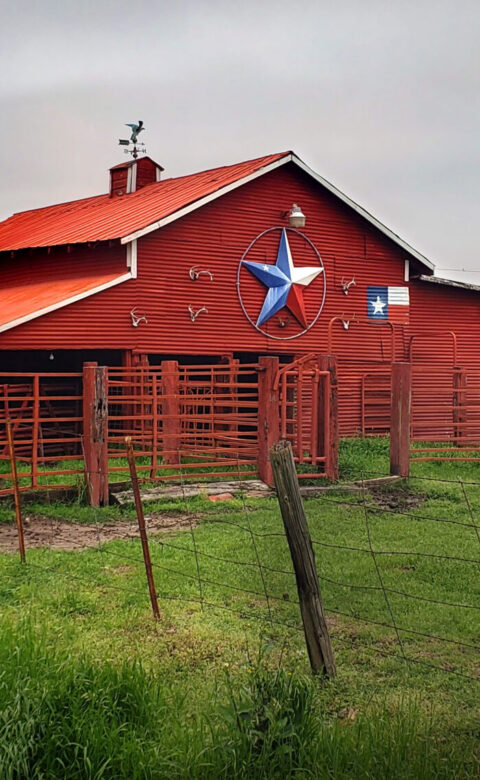Someone flags down the kombi and the driver pulls over onto the shoulder. While people board, he wipes his forehead with a waslap and drinks deep from his water bottle. Once everyone is settled, he tugs the cord of the contraption he has hooked up to the vehicle’s roof, sliding the door shut. He hoots the horn a few times to attract more customers, but there are no takers — so he swings the taxi back onto the road. He cranks up the music, and we’re off again.
My morning journey to Broadhurst in Gaborone, Botswana is well underway. At a busy intersection, an agile street vendor spins towards the kombi’s open window, selling P5 guava-flavoured popsicles; but the robot lights turn green before he concludes a sale. Still, our driver does not take off immediately: Gaborone drivers know to check left, right and left again in case of someone running a red light.
The driver goes slower than the 60km/hour speed limit, honking whenever he spots a pedestrian. Some shake their heads and gesture no. Others pay him no mind. We turn into the busier section of Gaborone and the first of the capital’s ubiquitous shopping malls appears. Its walls boast names of South African chain stores. Billboards bearing faded messages of “Buy Botswana” and “Abstain. Be Faithful. Condomise.” vie for visibility with newer ones advertising state-of-the-art cellphones, fire churches preaching the prosperity gospel, pawn shops. With elections nearing, the faces of beaming politicians will be going up soon. A few cows cross the road to get to a patch of grass, halting traffic. A passenger complains, “Who owns these animals? But this is so irresponsible!”
At last, our kombi picks up speed as it merges onto the A1. We swerve in and out of lanes, as we race into Broadhurst. The driver hangs his arm out of the window, gesturing to other drivers to give way as he forces his way through the traffic.
“Next stop!” I yell from the rear.
After disembarking in front of Kagiso Centre, I glance at my watch. I hurry past people walking like there’s no hurry in Botswana. I must finish all my errands before lunchtime, I tell myself.
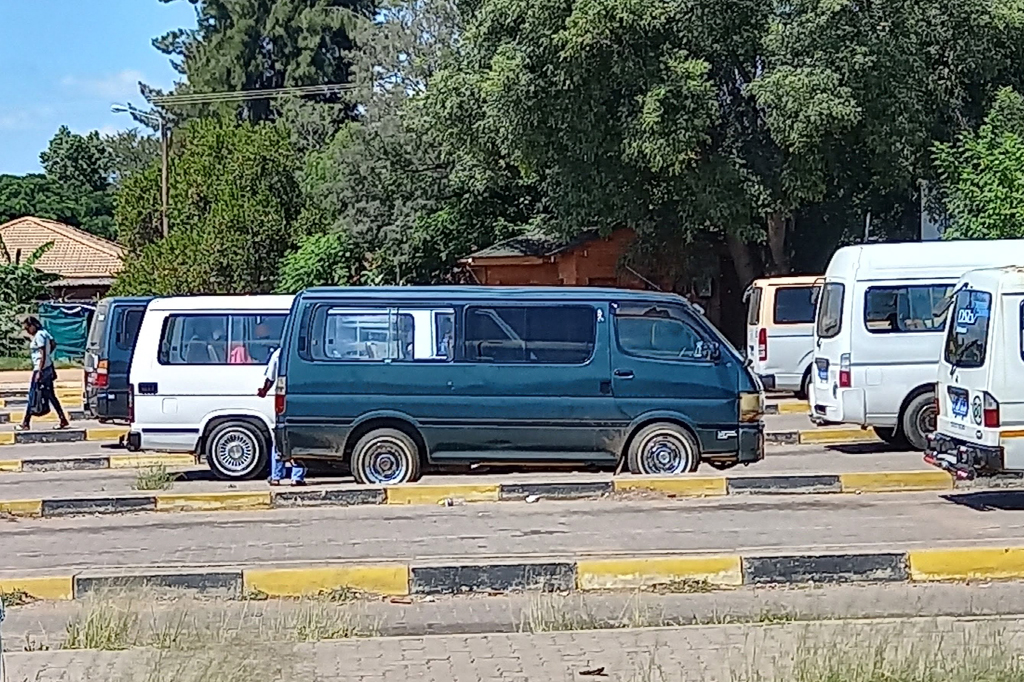
With temperatures hovering around 40°C from noon to sunset, I am thankful for respite from February’s wrath. The driver expressed it better when he said, “The sun is fighting these days.” I fold away my umbrella as I enter the government building.
At the entrance to the Civil and National Registration Office, a security guard stands sentry. She asks everyone who enters to state the nature of their business. I say I’m renewing my ID. People are sitting shoulder-to-shoulder on wooden benches in the hall; others form a queue that snakes into the corridor. I thought I had timed my visit right — choosing a Wednesday, mid-month, when the line should not have been this long — but it is.
“Dumelang,” I greet the woman at the end of the line and ask: “Ke wena wa bofelo?” “Dumelang,” she greets back and confirms that she is indeed last in line.
Meanwhile, the floor is being cleaned. One person wields a mop, another pushes a bucket, one more waves a torn sheet of cardboard over the wet floor whilst yet another directs people to walk on the dry side, reprimanding those who dare cross the barrier.
On the TV in the waiting room, a presenter speaks animatedly in the language of now: “Fourth Industrial Revolution, mindset change, economic diversification”. The lights flicker. Go off. A collective groan fills the room, but the power returns after only a few minutes. The relief in the air is palpable.
A man about my grandfather’s age pauses at the door as he surveys the roomful of people. He shuffles into the room with a whiff of dry-cleaning fluid following him. He is dressed as if for a special occasion: hound’s tooth jacket, grey gabardine trousers, white shirt and a Dobbs hat tilted to one side. He clears his throat and greets the room, carefully enunciating each word, “Dumelang bo mma le bo rra”.
“Ee, rra.” “Rremogolo.” “Dumela, rra.” The responses are variations of one message — an acknowledgement that a greeting has been proffered and received.
A mother prods her teenager to stand and offer the older man his seat.
***
A young person strides into the room. He does the unthinkable and neglects his greeting to the assembled, moving directly to the reception window. His voice carries; he speaks with the authority of someone who has a two o’clock appointment. I do not have to hear the receptionist’s response to know what she’s telling him: “You see all these people? They’re here for the same thing as you”, and with that she disappears into the inner chambers of the office, leaving the man tapping out his agitation with his fingertips on the counter top. He gives us a desultory glance, shakes his head, and sits, becoming one of us.
He proceeds to tap furiously on his iPad.
***
Were it not for the “No Cellphones” signs and computer screens, one could be forgiven for thinking this is the 1980s. Botswana, the country of my birth, still has a ‘no problems here’ — a ga gona mathata — rhythm. I was raised on it and accepted it as the pace of things. I have surmised that it must be rooted in an era when we measured time by the tilt of the sun, not from watches ticking seconds — when the earth was still soft, as the Setswana saying goes. But this slowness has birthed a pejorative term, “African Time”, that has no place in a country that harbours aspirations of becoming a high-income country.
Still, we begin with dumela. The greeting is expected. It affirms that we are human. It opens the way to conversations about why the queue is so long. We learn that the IT system has been down again — hence the backlog. We lament why the rains are so long coming; we question what changes in tribal land allocation really mean; we learn where to find potatoes that are in short supply.
We laugh sometimes as the hours evaporate, and the wait does not feel as long.
It is three o’clock when my turn arrives.

